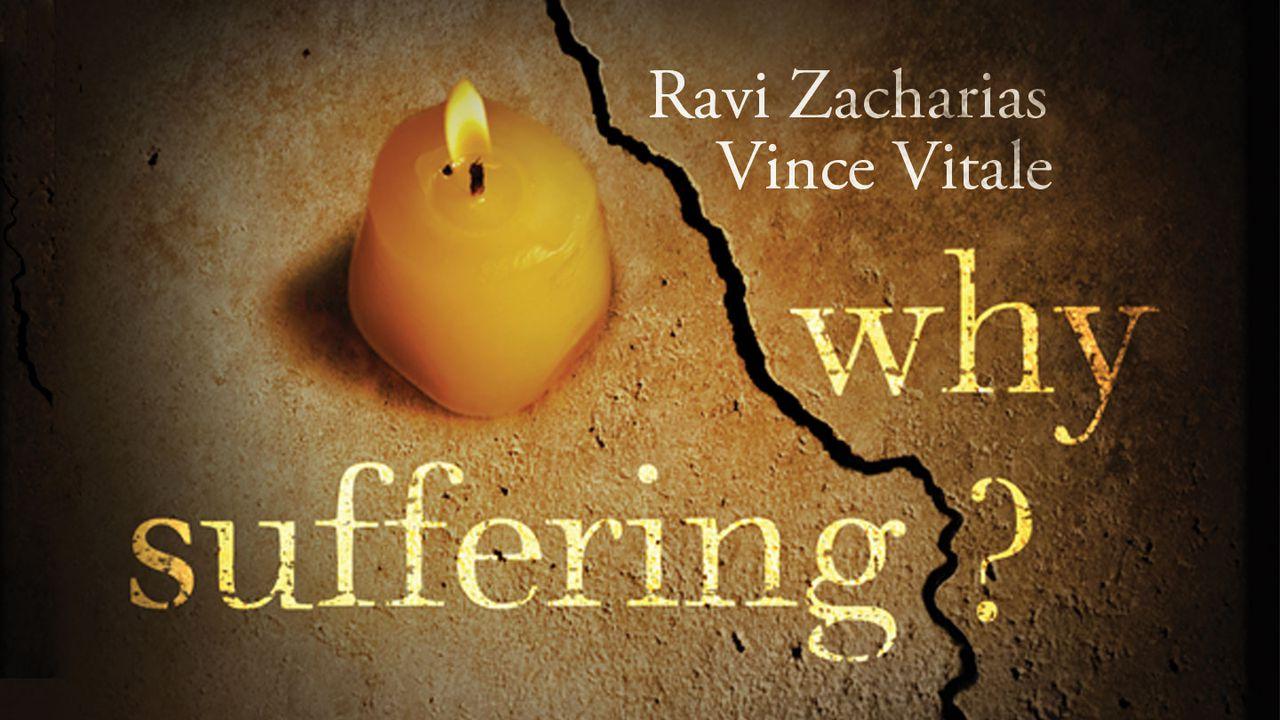Why SufferingSample

Islam and Suffering
Islam has often been described as a pantheism of force. It’s a fact that in Islam the quid pro quo is so dominant that you are compelled to do things in a certain way or face destruction. Consider any Islamic country. The subtle or overt threats or belittling to which you are subjected if you depart from the rules means that you are expected to comply.
What is meant by a pantheism of force? One term that Islamic scholars use for how to face suffering is the word rida—a technical term for being pleased and content. Different from Buddhism, rida is not just indifference to pain or mere apathy. It’s a cultivated positive well-being state of mind that transcends the outward circumstances; suffering is transformed from a negative to a positive. From this follows a sense of detachment and a gradual erasing of concern over any change in your circumstances. Do you see the pantheistic nuances here? The goal is a near celebration without the emotion, even in the face of terrible pain and suffering.
Among Islamic writers the idea of detachment is used repeatedly. Here is Yasmin Mogahed; notice her words: “And pain is a pointer to our attachments. That which makes us cry, that which causes us most pain is where our false attachments lie.”[1]
Al-Imam al-‘Izz bin Abdi-s-Salam says, “Any good thing that happens to you is from Allah. Any bad thing that happens to you comes from yourself.”[2] The follower of Allah is encouraged not just to be indifferent to pain but to experience sublime delight in suffering as evidence that as an obedient follower of Allah he cannot be hurt by it. It all becomes “good” for you.
He moves from how to accept suffering to how not to feel suffering and finally to even applauding suffering until the ultimate coward is the one who is not willing to be a martyr. Martyrdom becomes the sublimation of suffering.
Yasmin Mogahed echoes the same thoughts. The formula for dealing with suffering is strictly a behavioral and belief code. She talks of how the love of dunya—the Arabic word for the world—is at the root of all pain. Although Islam has a different take on the theme of suffering, when systematized it comes perilously close to the pantheistic tendencies of Buddhism.
What is absent from all of this is the necessary bridge between the head and the heart. The love of God for you, the call to love God with your heart and mind, is only present as obedience to a legalistic measurement. The love of God and His reaching out for you is totally absent.
In fact, love as romance is almost mocked, as if romantic love is a childish thing to be engaged in. The notion of love in Islam is most instructive in that it’s conspicuously absent. It’s important for us to understand this. The logical flow of this belief is evident:
- If you experience pain, it’s your fault.
- So move to detachment, from being free from feeling pain to welcoming it.
- The love of God becomes the demands of God.
- Respect and love are often in vague confusion.
- Suffering is atonement for one’s wrongdoing.
- There is total absence of grace and forgiveness; one always pays.
- Religion is a means for paying for wrongdoing.
- The renunciation of pleasure as sacrifice is the ultimate state of pleasure in material terms.
- Martyrdom is the supreme triumph over pain.
It’s interesting that the infliction of pain is initially seen as a judgment for wrong but is then strangely sublimated into becoming totally “pleasing” in one’s own experience of pain. For the Muslim, submission is the supreme ethic from beginning to end until your endurance removes any present value from you as a person except as a ledger for good and bad. Because God is totally sovereign, total detachment from life and from relationships is the only way to avoid pain and suffering. In the end, the result is a stifling of the deepest longing of the human heart for love. The definition of love is either lost or obscured or trivialized. Without love, the meaning of life is unknowable.
Reflection Questions
- Why is the notion of love so integral to knowing the meaning of life?
- Which is greater, triumphing over pain through martyrdom, or giving one’s life in the selfless service of others?
Bible Verses
- John 9
- Matthew 16:26
Citations
[1] Readers may find this material online: Yasmin Mogahed, “Why Do People Have To Leave Each Other?” part 1 (March 29, 2011), at http://www.suhaibwebb.com/personaldvlpt/character/why-do-people-have-to-leave-each-other/.
[2] As quoted in Al-Imam al-‘Izz bin Abdi-s-Salam, Trials and Tribulations: Wisdom and Benefits (London: Daar us-sunnah Publishers, 2004), 48.
Scripture
About this Plan

This study is based on the book WHY SUFFERING? written by Christian apologist Ravi Zacharias and Vince Vitale, Dean of the Zacharias Institute, It is written for the Christian struggling for an answer, the seeker who thinks suffering disproves God’s existence, and the sufferer who needs a glimpse of a loving God.
More
Related plans

My Little Heart

Strength for Singles - Lessons From Sampson

Beyond the Hype: Finding Confidence in God's Promises

I’m Just a Guy: Wrestling With Money

How We Gave $1 Million (Without Being Rich)

Mental Health and the Bible

The Artist's Identity: Rooted and Secure

Prayer Initiative: Closer to Jesus

Abide
